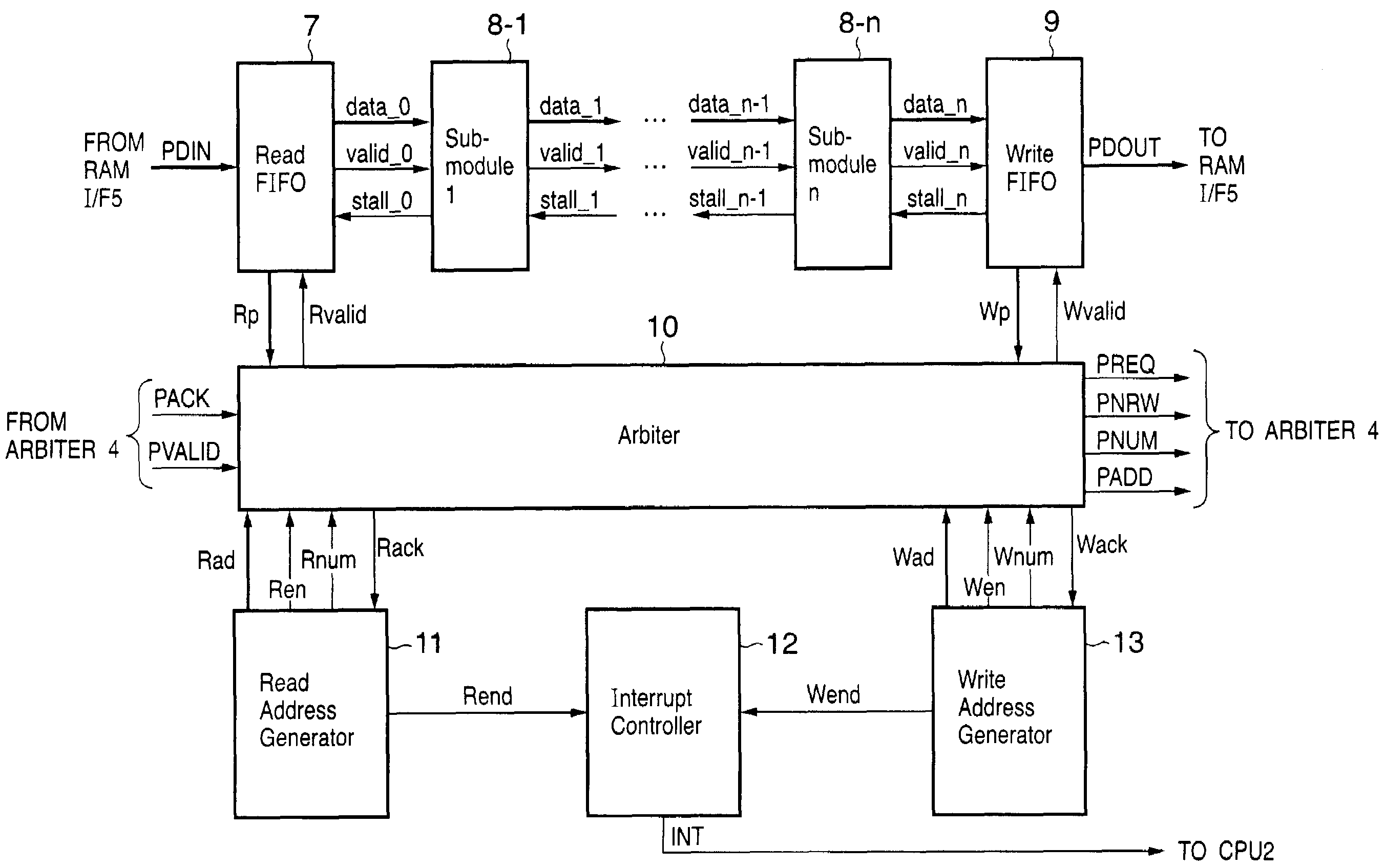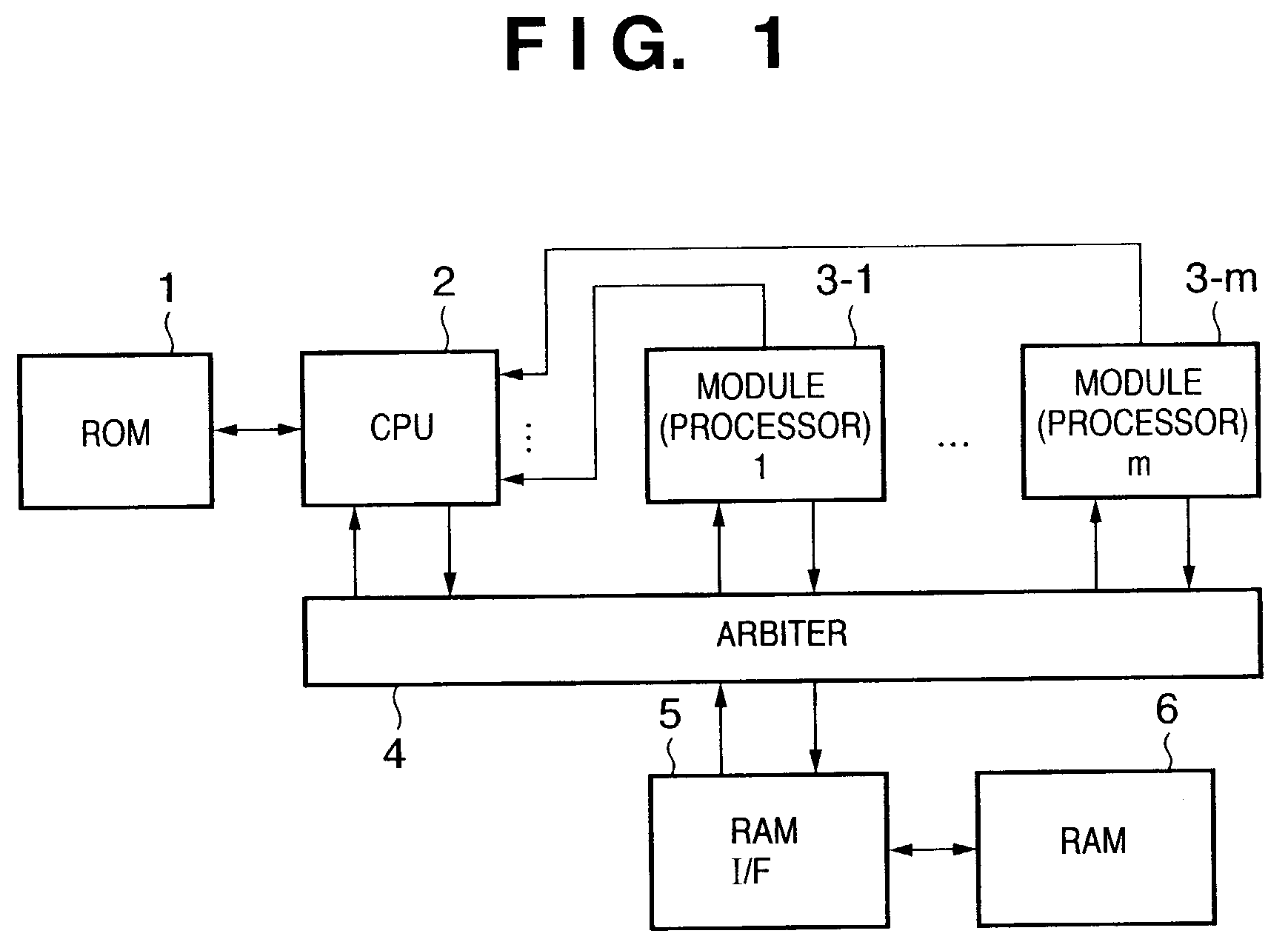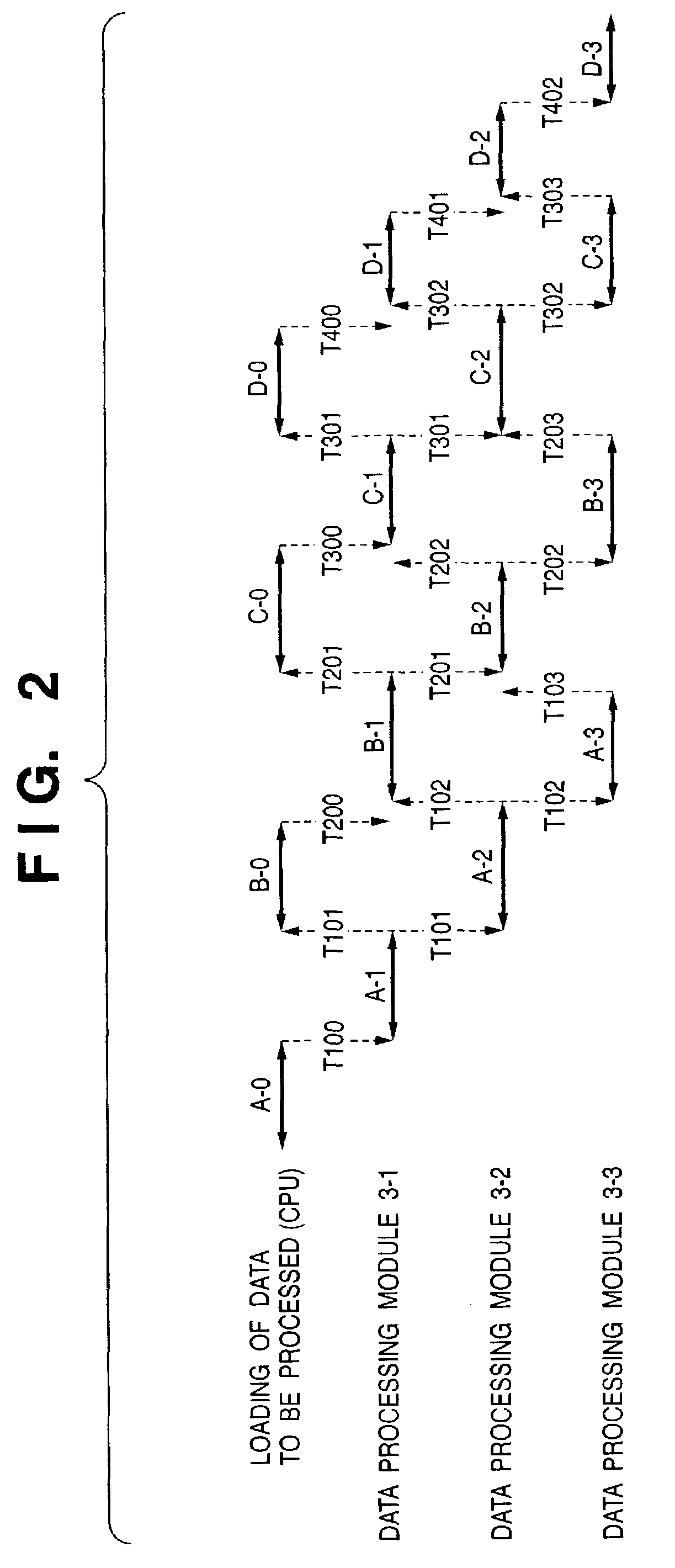Data processing apparatus, image processing apparatus, and method therefor
- Summary
- Abstract
- Description
- Claims
- Application Information
AI Technical Summary
Benefits of technology
Problems solved by technology
Method used
Image
Examples
first embodiment
[0093]The first embodiment of the present invention will be described in detail below with reference to the accompanying drawings. FIG. 1 is a block diagram showing an example of the arrangement of a data processing apparatus according to the first embodiment of the present invention.
[0094]Referring to FIG. 1, reference numeral 1 denotes a ROM storing programs and the like; 2, a CPU for controlling the data processing apparatus; 3-1 to 3-m (m is an integer equal to or more than 1), m data processing modules (processors); 6, a RAM; 4, an arbiter for arbitrating access to the RAM 6 between data processing modules 3-1 to 3-m; and 5, a RAM interface unit 5. Although the RAM 6 in this embodiment is shared by the CPU 2 and the respective data processing modules 3-1 to 3-m, the CPU 2 may have another RAM.
[0095]The processing operation of the data processing apparatus having the above arrangement will be described next.
[0096]The CPU 2 receives data to be processed through an I / O or the like...
second embodiment
[0157]FIG. 9 is a block diagram for explaining the detailed internal arrangement of each module of a data processing apparatus according to the second embodiment of the present invention. Referring to FIG. 9, reference numerals 19-1 to 19-i (i is an integer equal to or more than 1) denote read FIFOs; 20, an arbiter; 21-1 to 21-n, sub-modules; 22-1 to 22-i, read address generators; and 23, a read interrupt controller. Only a portion different from the first embodiment will be described below.
[0158]Assume that in this embodiment, the sub-module 21-1 handles data stored at a plurality of discontinuous addresses. For this reason, each module in this embodiment includes a plurality of read FIFOs 19-i and a plurality of read address generators 22-i corresponding to the respective read FIFOs 19-i. If, for example, data from a plurality of lines are simultaneously required as in a case of block encoding of an image, a FIFO and read address generator are provided in correspondence with each ...
third embodiment
[0167]FIG. 10 is a block diagram for explaining the detailed internal arrangement of each module of a data processing apparatus according to the third embodiment of the present invention. Referring to FIG. 10, reference numeral 24 denotes a read buffer; 25-1 to 25-n, sub-modules; and 26, a read address generator. Only a portion different from the first and second embodiments will be described below.
[0168]Assume that in this embodiment, as in the second embodiment, a sub-module 25-1 handles data stored at a plurality of discontinuous addresses. Assume, however, that in this embodiment, there is predetermined regularity between the above discontinuous addresses as in block encoding of an image.
[0169]A CPU 2 sets a configuration register in a module 3 to set a read start address and read end address in the read address generator 26 and set an read enable signal Ren.
[0170]The arbiter 10 detects a free space Rp of the read buffer 24 and the read enable signal Ren from the read address ge...
PUM
 Login to View More
Login to View More Abstract
Description
Claims
Application Information
 Login to View More
Login to View More - R&D
- Intellectual Property
- Life Sciences
- Materials
- Tech Scout
- Unparalleled Data Quality
- Higher Quality Content
- 60% Fewer Hallucinations
Browse by: Latest US Patents, China's latest patents, Technical Efficacy Thesaurus, Application Domain, Technology Topic, Popular Technical Reports.
© 2025 PatSnap. All rights reserved.Legal|Privacy policy|Modern Slavery Act Transparency Statement|Sitemap|About US| Contact US: help@patsnap.com



